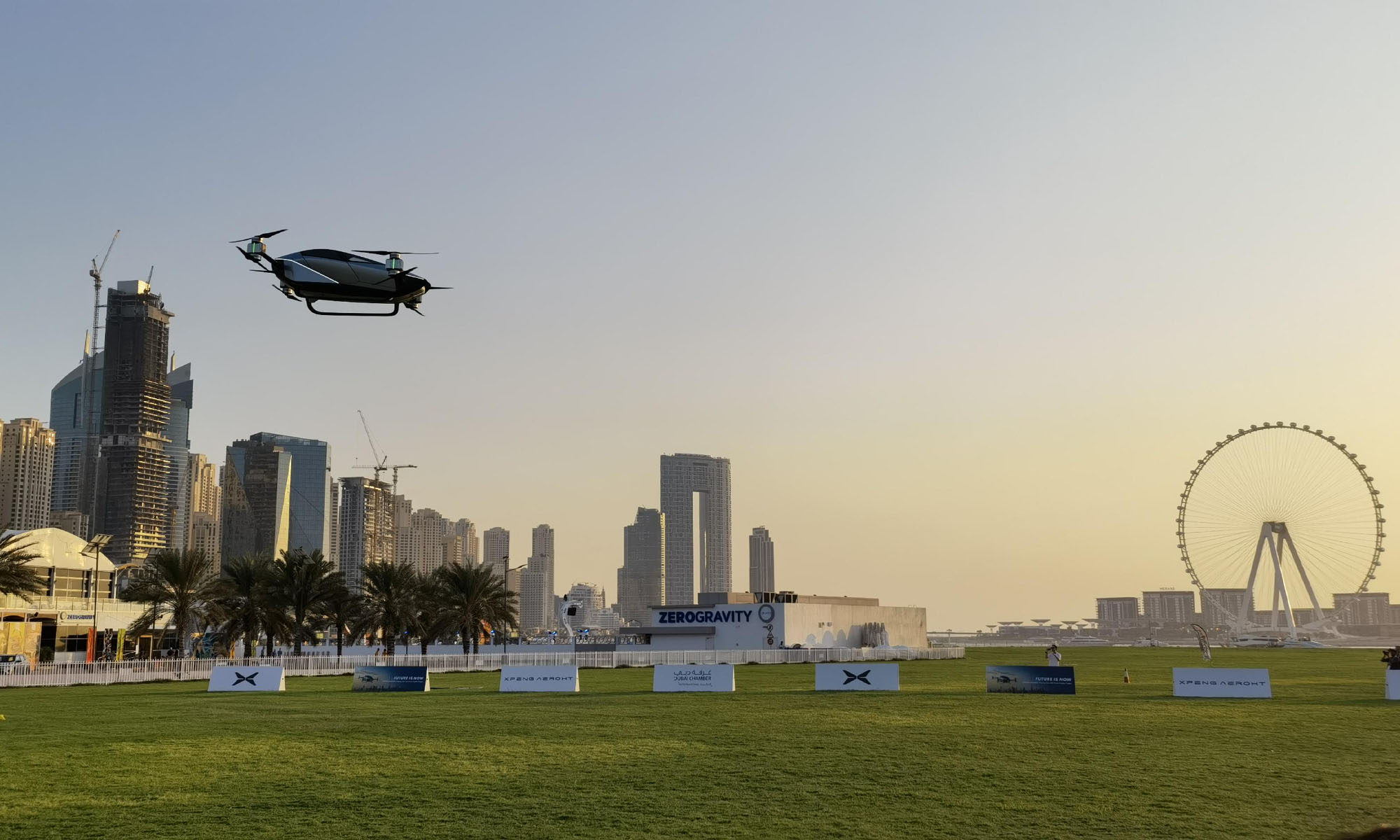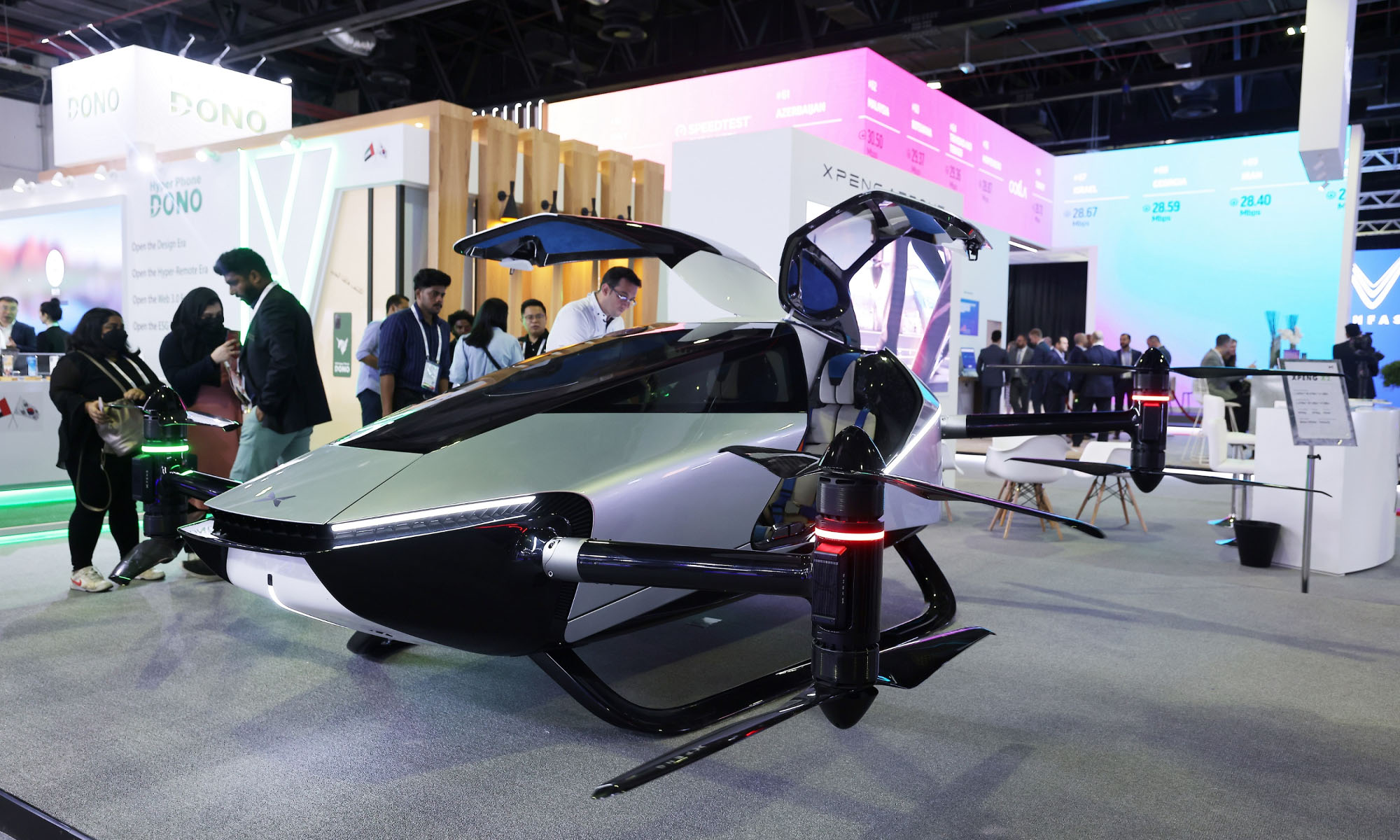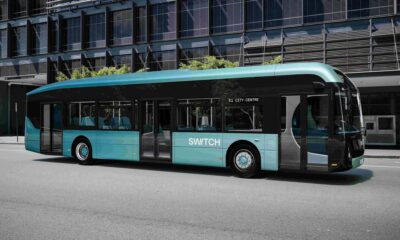News
eVTOL X2 Flying Car Debuted At GITEX GLOBAL 2022
Electric flying cars have been tried before, but the 90 minute eVTOL X2 test flight conducted by the Dubai International Chamber proves that the concept can work.

GITEX Global 2022 has been the scene of the first viable flight of an electric car. The eVTOL (electronic Vertical Takeoff and Landing) X2, created by Chinese EV company Xpeng, launched from Skydive Dubai on a successful 90-minute test flight, under the watchful eyes of the Dubai International Chamber.

The eVTOL X2 flying car is impressive not just for its aeronautical capabilities, but also because it produces zero carbon dioxide emissions. The vehicle is designed for cruising at 130 km per hour at low altitudes, with a typical flight time of 35 minutes, and skid-style landing gear that’s perfect for touching down on the rooftops of high buildings — perfect for escaping those annoying traffic queues!

The Emirates News Agency noted that the International Chamber had made great efforts to attract leading international companies to Dubai. The country is now a leader in future technology and innovation and a hub for multinational companies looking to launch high-tech products to global markets.
Also Read: Wisk Aero Unveils Four-Seat Autonomous Air Taxi
The test flight event was further supported by the Dubai Civil Aviation Authority, Dubai’s Department of Economy and Tourism, and the Dubai World Trade Center Authority.
As for the car itself, the futuristic two-seater eVTOL X2 is noteworthy for its intelligent flight control system and ability to fly autonomously. The vehicle is the latest generation of tech developed by XPENG AEROHT. It features 8 propellers with an electric motor powering each one, as well as a carbon fiber shell which helps to keep weight to an impressive 360kg.
News
Rabbit Expands Hyperlocal Delivery Service In Saudi Arabia
The e-commerce startup is aiming to tap into the Kingdom’s underdeveloped e-grocery sector with a tech-first, locally rooted strategy.

Rabbit, an Egyptian-born hyperlocal e-commerce startup, is expanding into the Saudi Arabian market, setting its sights on delivering 20 million items across major cities by 2026.
The company, founded in 2021, is already operational in the Kingdom, with its regional headquarters now open in Riyadh and an established network of strategically located fulfillment centers — commonly known as “dark stores” — across the capital.
The timing is strategic: Saudi Arabia’s online grocery transactions currently sit at 1.3%, notably behind the UAE (5.3%) and the United States (4.8%). With the Kingdom’s food and grocery market estimated at $60 billion, even a modest increase in online adoption could create a multi-billion-dollar opportunity.
Rabbit also sees a clear alignment between its business goals and Saudi Arabia’s Vision 2030, which aims to boost retail sector innovation, support small and medium-sized enterprises, attract foreign investment, and develop a robust digital economy.
The company’s e-commerce model is based on speed and efficiency. Delivery of anything from groceries and snacks to cosmetics and household staples is promised in 20 minutes or less, facilitated by a tightly optimized logistics system — a crucial component in a sector where profit margins and delivery expectations are razor-thin.
Despite the challenges, Rabbit has already found its stride in Egypt. In just over three years, the app has been used by 1.4 million customers to deliver more than 40 million items. Revenue has surged, growing more than eightfold in the past two years alone.
Also Read: Top E-Commerce Websites In The Middle East In 2025
CEO and Co-Founder Ahmad Yousry commented: “We are delighted to announce Rabbit’s expansion into the Kingdom. We pride ourselves on being a hyperlocal company, bringing our bleeding-edge tech and experience to transform the grocery shopping experience for Saudi households, and delivering the best products – especially local favorites, in just 20 minutes”.
The company’s growth strategy avoids the pitfalls of over-reliance on aggressive discounting. Instead, Rabbit leans on operational efficiency, customer retention, and smart scaling. The approach is paying off, having already attracted major investment from the likes of Lorax Capital Partners, Global Ventures, Raed Ventures, and Beltone Venture Capital, alongside earlier investors such as Global Founders Capital, Goodwater Capital, and Hub71.





















